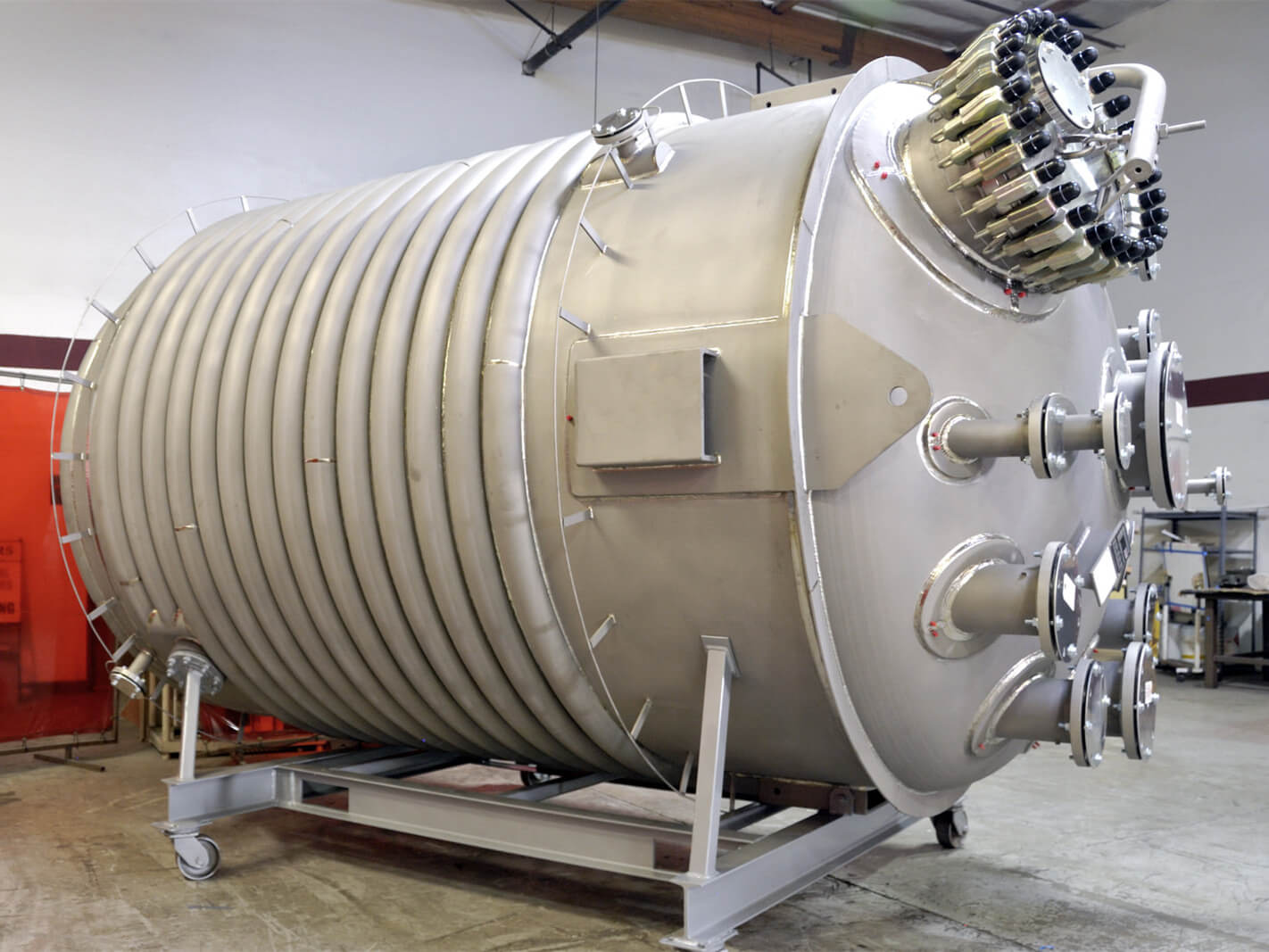In the realm of chemical engineering, where precision, durability, and safety are paramount, titanium reactors stand out as a secret weapon. These marvels of modern engineering play a pivotal role in a myriad of industrial processes, offering unparalleled performance and reliability.
The Genesis of Titanium Reactors
Titanium, a transition metal renowned for its exceptional properties, serves as the cornerstone of titanium reactors. Its unique combination of strength, corrosion resistance, and biocompatibility makes it an ideal material for containing and facilitating chemical reactions under demanding conditions.
The journey of titanium reactors begins with the extraction of titanium ore, typically in the form of titanium dioxide (TiO2). Through a series of complex processes, including reduction and purification, titanium metal is obtained, ready to be shaped into reactor vessels that will withstand the rigors of chemical processing.
Applications Across Industries
The versatility of titanium reactors enables their widespread adoption across a diverse range of industries. In the chemical sector, they are instrumental in the production of acids, fertilizers, polymers, and specialty chemicals. Their resistance to corrosion ensures the integrity of the reactor, even in the presence of aggressive substances and high temperatures.
Moreover, titanium reactors find extensive use in the pharmaceutical industry, where stringent purity requirements demand materials that can withstand rigorous cleaning processes without contamination. Additionally, they play a crucial role in the production of petrochemicals, wastewater treatment, and food processing, where their durability and reliability are indispensable.
Advantages Galore
The adoption of titanium reactors offers a multitude of advantages that set them apart as a preferred choice for chemical engineering applications:
- Corrosion Resistance: Titanium’s inherent resistance to corrosion, even in highly acidic or alkaline environments, ensures the longevity and reliability of reactors, reducing maintenance costs and downtime.
- High Strength: Despite its low density, titanium boasts exceptional strength, allowing for the construction of robust reactors capable of withstanding high pressures and temperatures.
- Lightweight: Compared to alternative materials such as stainless steel or glass-lined reactors, titanium offers a significant weight advantage, facilitating easier installation and transportation.
- Biocompatibility: In applications involving pharmaceuticals or food processing, the biocompatibility of titanium ensures that products remain free from contamination, meeting stringent regulatory standards.
- Thermal Stability: Titanium’s ability to maintain its mechanical properties at elevated temperatures makes it an ideal choice for processes involving thermal cycling or high-temperature reactions.
- Environmental Sustainability: Titanium’s long lifespan and recyclability contribute to environmental sustainability by reducing the need for frequent replacements and minimizing waste.
The Science Behind Titanium’s Resilience
The exceptional properties of titanium that make it an ideal material for reactors stem from its unique atomic structure and bonding characteristics.
Titanium’s corrosion resistance is attributed to the formation of a thin, adherent oxide layer on its surface, known as titanium dioxide (TiO2). This oxide layer acts as a protective barrier, preventing further corrosion and degradation of the metal substrate. Even in aggressive environments containing acids or chlorides, this oxide layer remains stable, ensuring the integrity of the reactor.
Furthermore, titanium’s crystal structure, featuring close-packed hexagonal arrangements of atoms, contributes to its strength and resilience. The strong bonds between titanium atoms, coupled with its hexagonal close-packed (HCP) lattice, endow the metal with excellent mechanical properties, allowing it to withstand high pressures and stresses without deformation or failure.
Looking Towards the Future
As industries continue to evolve and demand increasingly efficient and sustainable processes, the role of titanium reactors is poised to expand further. Ongoing research and development efforts aim to optimize reactor design, enhance material performance, and broaden the range of applications for titanium in chemical processing.
Furthermore, advancements in additive manufacturing techniques, such as 3D printing, offer new possibilities for the fabrication of complex titanium reactor components with enhanced efficiency and precision. This convergence of materials science, engineering innovation, and manufacturing technologies promises to unlock new frontiers in reactor design and performance.
In conclusion, titanium reactors represent a pinnacle of engineering excellence, embodying the fusion of advanced materials, scientific knowledge, and industrial ingenuity. As catalysts for chemical transformation, these vessels play an indispensable role in shaping the modern world, driving innovation, sustainability, and progress across a myriad of industries. With their unparalleled performance and resilience, titanium reactors stand as testaments to the boundless potential of human ingenuity in harnessing the power of materials to meet the challenges of tomorrow.
